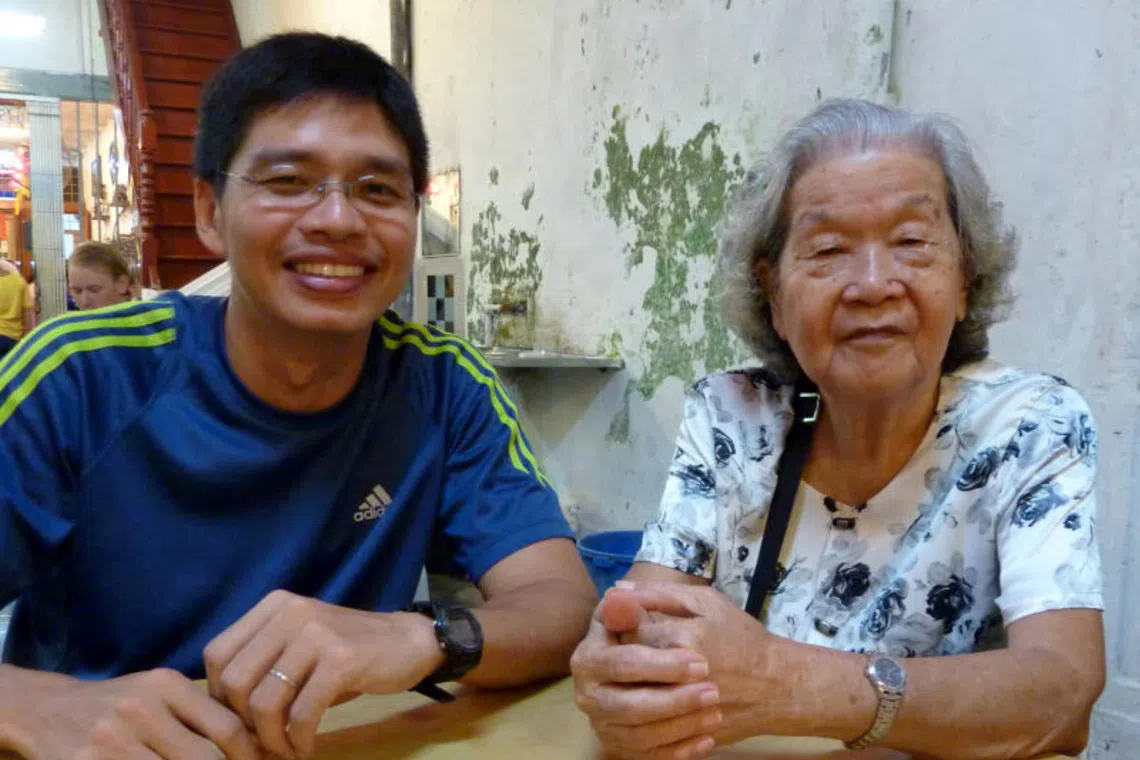For subscribers
Recalling memories of Ah Mah – in fragments of Teochew
The search for a lost dialect isn’t just about culture and communication, but a reconnection to a beloved grandma.
Sign up now: Get ST's newsletters delivered to your inbox

The writer with his grandmother. Their daily chats when she was alive were in Teochew, a language now he has trouble speaking.
PHOTO: COURTESY OF LESLIE KOH
Recently, I tried speaking Teochew to a friend, only to discover that I had to pause and think of the words before opening my mouth. They didn’t arrive naturally, and I had trouble even completing a sentence – which, in any case, emerged in a painful stutter.
It was a rude shock, because I had long believed myself to be a fluent speaker of Teochew. Not at the first-language level at which I spoke English, for sure, but enough to hold conversations with my late grandmother that went well beyond “Have you eaten dinner?”. We had regular and prolonged discussions about history, culture and politics, though these were often interrupted by me having to ask her what the right word for, say, democracy, was.


